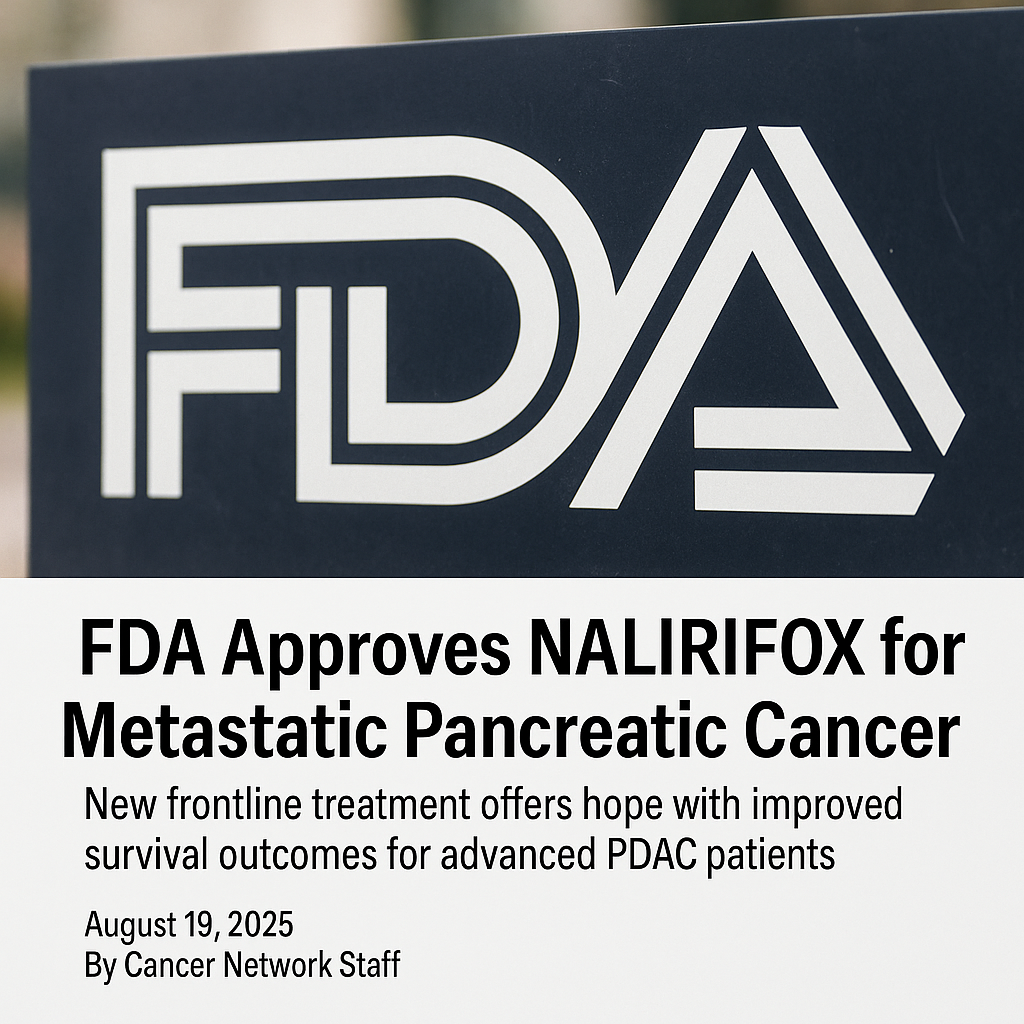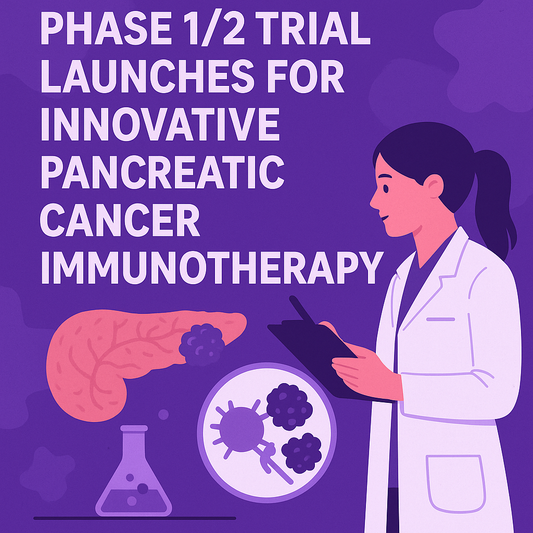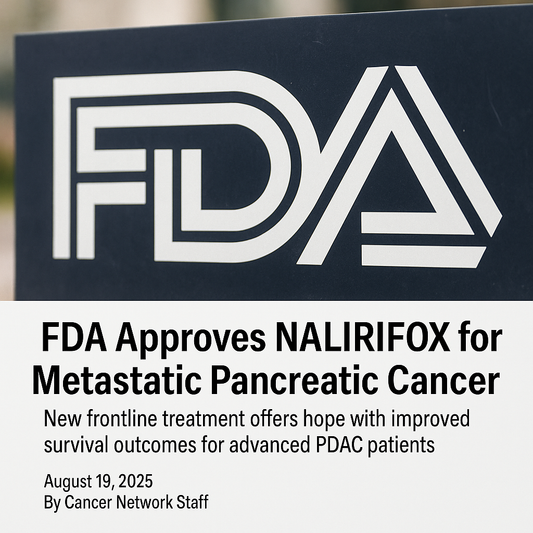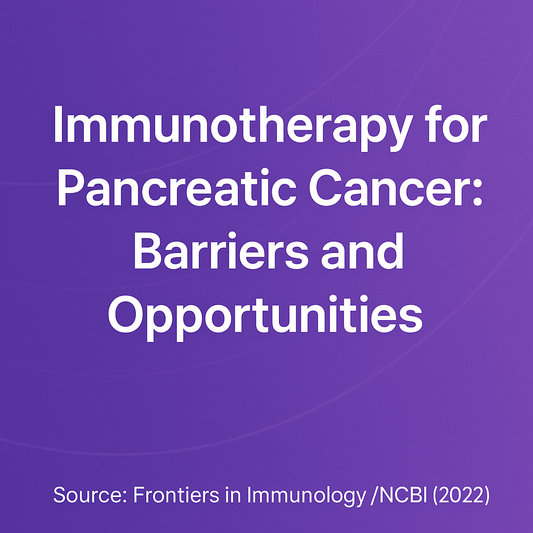
FDA Approves NALIRIFOX as First-Line Treatment for Metastatic Pancreatic Cancer
Share
New frontline treatment offers hope with improved survival outcomes for advanced PDAC patients
The U.S. Food and Drug Administration (FDA) has officially approved NALIRIFOX, a new frontline therapy for patients with metastatic pancreatic ductal adenocarcinoma (PDAC). The approval marks a major milestone in pancreatic cancer treatment, where options have long been limited and survival rates remain among the lowest of all cancers.
The approval was based on results from the NAPOLI 3 trial, which demonstrated that NALIRIFOX significantly improved overall survival (OS) and progression-free survival (PFS) compared with the standard gemcitabine plus nab-paclitaxel regimen. Patients receiving NALIRIFOX achieved a median OS of 11.1 months compared with 9.2 months in the control group. Median PFS was also longer, at 7.4 months vs. 5.6 months, respectively.
NALIRIFOX combines liposomal irinotecan (nal-IRI), 5-fluorouracil/leucovorin, and oxaliplatin into one regimen designed to deliver stronger anti-tumor activity. Importantly, the safety profile was considered manageable, with the most common side effects including neutropenia, diarrhea, and fatigue.
Experts believe this approval could change the standard of care for many patients. “This regimen provides a new option for patients newly diagnosed with advanced pancreatic cancer, where progress has historically been slow,” researchers noted.
The FDA decision also highlights the growing role of combination chemotherapy regimens tailored specifically to pancreatic cancer biology. With survival benefits observed across multiple subgroups, NALIRIFOX is expected to be widely adopted in oncology centers.
Looking ahead, researchers are exploring whether NALIRIFOX can be combined with emerging targeted therapies and immunotherapies to further extend patient outcomes. Additional studies are underway to evaluate its use in earlier-stage disease and in combination with novel agents.
This approval represents a rare but important step forward in the fight against pancreatic cancer, offering new hope to patients and families facing this aggressive disease.
Source: Cancer Network, 2025



